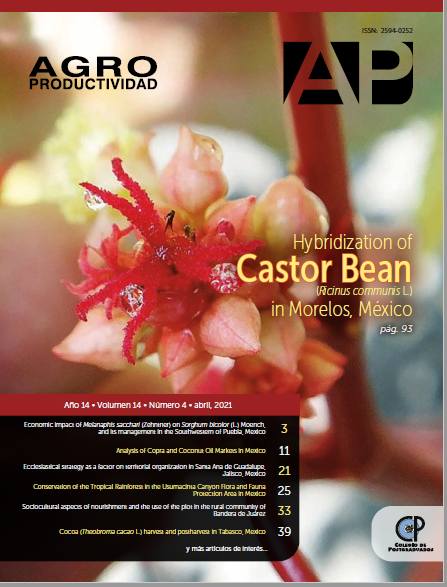Physicochemical and microbiological evaluation of traditional queso molido (ground cheese) during maturation
##plugins.themes.bootstrap3.article.main##
Keywords
Main components, raw milk, fresh cheese, traditional.
Resumen
Objective: To evaluate the changes in the main microorganisms groups and the physicochemical properties of Queso Molido (Ground Cheese) from the Central Mexican Highlands, during a 90 days maturation period.
Methodology: The fat, protein, moisture, ash and chloride contents, acidity and pH were analyzed. Microbiological analyzes of total coliforms, lactic acid bacteria, yeasts and Staphylococcus were also assessed. An ANOVA and a principal component analysis were performed to analyze the effect maturation had on the physicochemical and microbiological characteristics.
Results: Both the physicochemical and microbiological parameters showed significant differences (p < 0.05) during the evaluated maturation period. The protein concentration increased, fat and acidity at the end of maturation, along with the absence of coliform bacteria, a decrease in lactic acid bacteria (LAB) and a high concentration of Staphylococcus and yeasts.
Limitations: It is necessary to evaluate these variables in other locations and similar production systems in other latitudes of the country.
Conclusion: The maturation of Queso Molido does not improve its microbiological quality.

